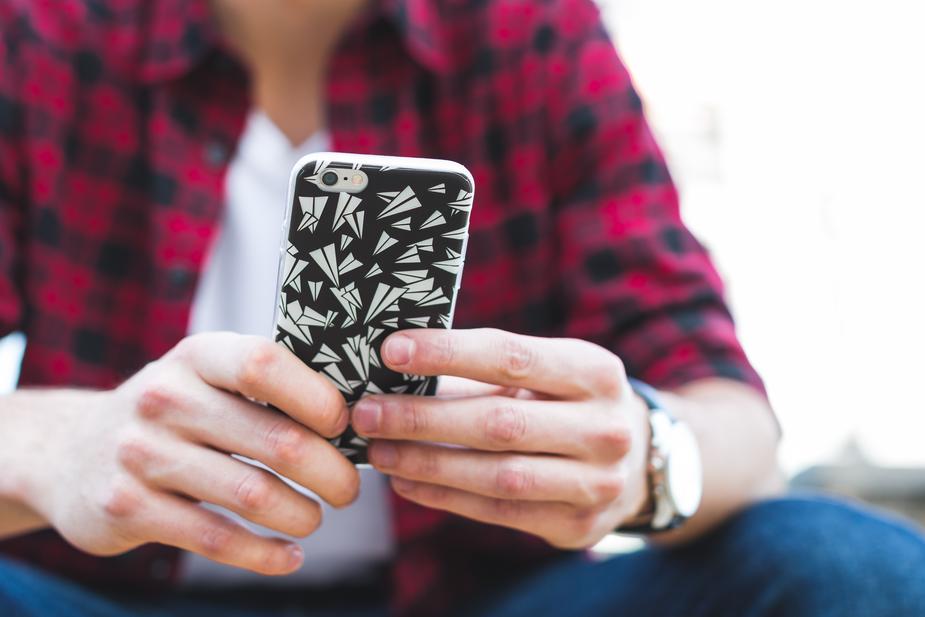Sorry, just checking something. Sorry, just need to quickly respond to this text. Sorry, just turning on low power mode. Sorry, just addicted to my phone and compulsively check it even when spending time with family and friends.
Have you ever experienced any of the following?
- Eyes burning from staring at a screen for hours
- Your attention span is totally shot and you find yourself in an endless loop checking apps, messages, and social media
- Curled up in an uncomfortable ball on the bathroom floor for half an hour checking a dumb app, trying to decide if you want to be patient or spend real money
- Asking your friends to tell you’re not allowed to spend real money on said stupid app
If you answered yes to any of these, you’re probably addicted to your phone.
If you answered yes to all of these, are you me?
I know it’s time for me to get rid of an app when I start making charts optimizing the game. Or when my arm starts to feel like I’m getting carpal tunnel syndrome twenty years too soon. My motivation to write my college thesis was to academically justify all the time I spent checking Snapchat while on family vacation.
Turns out, my phone addiction has more physical consequences than I was previously aware. On average, human heads weigh 10-12 pound. Our neck muscles are super tough since most of the time, we’re holding our heads upright.
Except when we bend our necks to check Instagram, or compose a text. When we bend down, the gravitational pull of our head increases pressure on our necks to nearly 60 pounds. Which, you know, isn’t great for our spines either.
Posture affects your mood, and can even impact behavior and memory. Frequently slouching alters your energy levels, bone development, and your oxygen intake, which can lead to depression. And if you’re already depressed, you were probably slouching anyways.
Add the negative impact overuse of phones can have on social interaction, and you’ve got a recipe for a lot of really unhappy people even more drawn to digital devices.
According to the Pew Research Center, 75 percent of Americans don’t think smartphone use hinders their attention in a group setting.
But as we stare more at screens instead of people, nonverbal cues get lost.
There’s a disengagement, even if you happen to be texting or playing virtual games with whoever is in the room with you. For children, loss of nonverbal cues due to constant phone use or competition for attention with their parents’ phone use can even stunt development.
As a writer, the lure of communicating with my phone is nearly irresistible since I can spend time working and reworking messages. However, social scientist Sherry Turkle’s decades of studies on family interactions and technology suggest that obsession with devices has created a generation afraid of spontaneity from organic interactions.
Receiving a phone call can spike anxiety, and forget about trying to interact with a stranger in the grocery store line. Knowing how much easier it is to type a message than deal with someone face to face can make analog interactions nerve-wracking.
Yet at the same time, the feeling of always being reachable and always “on” brings another kind of anxiety to the table.
According to a 2015 Pew Research center report, 24 percent of teens are “almost constantly” online, and a Nielsen report found adults spend around 10 hours per day consuming electronic media.
If someone doesn’t respond to your text and you know they always have their phone with them, does that mean they’re mad? If you forgot to respond to a message from someone, will they take it as a personal offense?
While smartphones and social media aren’t necessarily harbingers of evil, we’re all affected physically, emotionally, and socially by our use, particularly overuse.
Manner and etiquette experts point out the obvious: spend more time with people in the room than on your phone. However, that’s easier said than done. Especially considering Facebook’s recent admission that the platform was specifically designed to be as addicting as possible.
Even without confessions from other sites and apps, that’s kind of their goal: revving up your dopamine with an addicting platform. So it’s understandable that there’s a drive to check your phone every few minutes (or seconds.)
However, change comes in baby steps. Try to be more mindful of how often you’re checking your phone, and when you’re checking it.
Henry Alford, author of “Would It Kill You to Stop Doing That: A Modern Guide to Manners” suggests making a point to not be the first person in your group to pull out a device.
It’s a small thing, but can at least help delay the eventual waterfall of everyone else bringing out their phones once one person breaks the seal. If you’re really struggling with phone addiction, there are apps that track how often you unlock your phone and spend time on apps.
That may be a reality check, especially if you’re checking your phone hundreds of times a day in the absence of reason. Make an effort to have more face-to-face conversations, and if nothing else, at least keep your phone stashed while you’re driving.
Lindsay is an editor for The American Genius with a Communication Studies degree and English minor from Southwestern University. Lindsay is interested in social interactions across and through various media, particularly television, and will gladly hyper-analyze cartoons and comics with anyone, cats included.













































Canon Printer Customer Care
April 19, 2018 at 6:36 am
Nice article and the information mentioned makes complete sense. I appreciate your kind words about a Smartphone addiction is killing social norms, physically hurting. We always use Canon Printer with Online document to print by mobile phones.
Pingback: Has Samsung learned from their Galaxy Fold bendy mistakes?